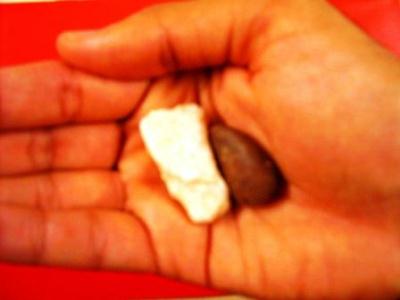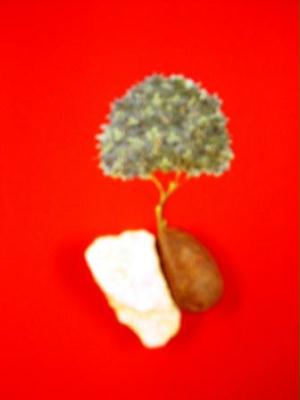A Response to Beloved Reader
Strolling this summer day
In the grove of words
I pick up sensations within
My body as I would pick up
Acorns, feathers, pinecones, Spider webs, smooth pebbles, And secret them away in My pockets for a lean winter,
A winter that has just passed. (But will perhaps return again, For who knows how these things Come and go?) And what is this
You may ask, that I am hoarding?
Look, treasure maps to that garden
Of books in which we were, for far
Too long, sitting at separate benches,
And admiring the vistas of lakes With ripples, the whistle of a hunter, Bark of a pack of hounds, the pinks Of a cherry orchard, the boom of cannons,
Letters that were read with great urgency By lovers, their assignations in musty rooms, A candle at the table that burnt all night As snow massed at a picture window.
This is where I have somehow, miraculously, (Sniffing that X - pirate gold buried here - Marked on your body) arrived, to lean my spine Against yours, and to read away these Remaining hours of my life with you.
My Poems
... link (no comments) ... comment
Some Marginalia
from a reading of a Paz’s essay titled “Reading and Contemplation”
- The presence of multiplicity of languages as an attack on the unity of the mind, and the condemnation of Babel, in the Hebrew Bible, as a condemnation of plurality, and of the cosmopolitanism of that first pluralist city, Babylon:
Observe the parallels with ideologues (who usually happen to fall on the extreme ends of thought spectrum, who while they would like to think of themselves as loci, as centers, are essentially driven away from the messiness of centers, those locales of Mammon), in this case to the right, and their wish to keep the nation pure.
Here in the United States (consider Samuel Huntington’s recent characterization Hispanic immigrants to the United States as the enemy, posing a much stronger threat than any other enemy, for example the Chinese, to the (White) Anglo Saxon Protestant dominance of the world, made even worse because ‘they’ threaten from within. In this the scholar stands in complete agreement with Pat Buchanan’s brand of racist isolationism) or over there in India, by Hinduvata elements who wish to purge the country of all other religions, most notably of whom they label the historical oppressor and destroyer of temples – the Muslim .
Also isn’t this one of the central forces and justification offered by the Jihadist – reclaiming the lands of Islam by fighting and expelling the infidel, who happens to be predominantly Christian, from his midst? Also wasn’t this taken to the extreme by that curious religion of the Aryan Volk, and subsequent flushing of the undesirables, by making soap out of them, in those great factories we now call the concentration camps?
- The prevalence of Glossolalia, or the speaking in tongues, in which languages doesn’t mean but is, across religions and cultures, suggests that this is indeed another of the human constants:
A discussion of the auditory powers ascribed to certain Sanskrit sounds, and their use as mental palliatives – the idea of a mantra as a sound that is tending towards silence. Also the glossolalia that accompanies the frenzied energy of certain religious dances and singing, during which perhaps thinking is short circuited, and man goes into a state close to music, that of pure form?
- The rhythms of Glossolalia and their relation and similarities to rhythms inherent in poetry:
The certain pull exuded by that woman Pentecostal televangelist, who spoke in tounges, over her audience, which by accident had included on that date me, in large part over me because of the hypnotic and rhythmic power of her speech. One can very well hear these cadences in the speeches given by MLK Jr.
- Glossolalia as parctized in literature by writers and poets, notably Lewis Carroll, with his jointed words exploding the multiplicity of possible meanings to a maximum, and those crazy experiments of James Joyce, who took this practice to the extreme (J.L. Borges had brought to my attention one particularly delightful combination: the glittergates of elfinbone).
Also more recently Galway Kinell in his introduction to some of his translations into English of Rilke’s German poems, pointed out that one of the central difficulties in the task was Rilke’s wonderful use of the ability to mix, match and weld together compound words in German, and the near impossibility to do so in versions of his English translations.
- Valery on translation of poetry: the translator seeks to produce similar effects through different means. Also translation of religious treatises and documents with the aim of preservation and transmission of sacred truths:
Must look up that recently reviewed book on the making of the King James Version of the Christian Bible, and its impact on the English language. Also the role of a translator as a doorkeeper and that power that such a role that enables him to accumulate – after all isn’t this what the role of most priestly classes essentially is: translators between man and God, between man and the Word?
My Daily Notes
... link (no comments) ... comment
Talking In Stone

[1]
I give you a gift
Of stones:
White stone, brown stone, Anchors to hold down Your each winged Eyelash from disappearing From my vision.

[2]
I hold my gift
On my tongue:
Your pubis, you belly, The windswept plazas of Venice, The fragrant, noisy souks of Cairo. There I bargain for a fair price As I am sold into your bondage.

[3]
I sleep, your hand
Holding mine:
Dark earth enters the belly. Arms become a basket Of birds, of stars. Roots coil and weave The limbs, white stone, brown stone. A kalpavkrish grows from the palms.
Image-ned Word
... link (no comments) ... comment
Next page

